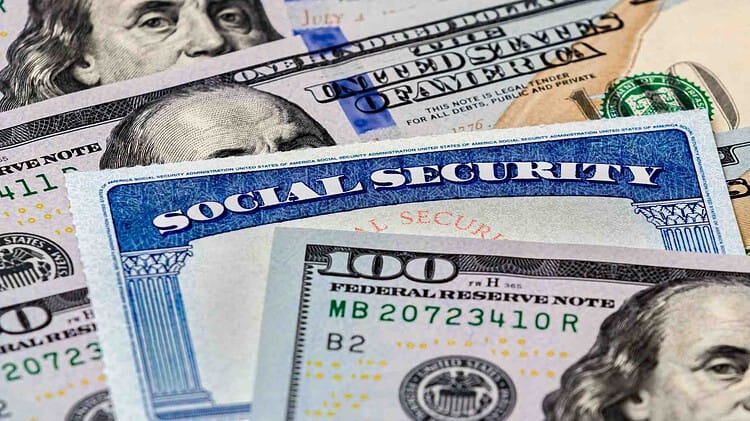There will be a few changes to Social Security in 2025, but one of the changes that some seniors should be aware of is the 2.5% increase in their benefits as a result of the annual cost of living adjustment.
Although an increase in benefits always appears to be a good thing, and many were upset because of the small increase in their benefits, some retirees may be less pleased, given that this could push them over the federal tax threshold for their benefits.
Contrary to popular belief, Social Security benefits are not taxed separately. All but nine states have an exemption from taxing Social Security (and the list grows smaller each year), and federal taxes do not apply to those who rely solely on benefits.
Instead, you are taxed on your “combined income.” So, what is the combined income? Your total income determines whether your Social Security benefits are taxable and how much of them are subject to federal income tax. It’s computed as:
- Your adjusted gross income (AGI)
- Any nontaxable interest you earn (like municipal bond interest)
- Half of your Social Security benefits
The total of these amounts determines whether or not you are required to pay federal taxes on your Social Security income. Keep in mind that even if states do not tax benefits, other sources of income may have already been subject to state taxes, so this only affects those who exceed the federal thresholds.
How much of your income can be taxed?
Depending on your total income, you may owe taxes on up to 50% or even 85% of your benefits. Here’s the breakdown:
Depending on your combined income, you could owe taxes on up to 50% or even 85% of your benefits. Here’s how it breaks down:
- Up to 50% of benefits taxable:
- Single filers with combined income between $25,000 and $34,000
- Joint filers with combined income between $32,000 and $44,000
- Up to 85% of benefits taxable:
- Single filers with combined income over $34,000
- Joint filers with combined income over $44,000

Why So Many Retirees Owe Taxes on Social Security Benefits
Currently, approximately 40% of Social Security recipients pay federal income taxes on their benefits.
According to the Senior Citizens League, a nonpartisan senior advocacy organization, this figure rises to around 50% for retirees. The group claims that this is significantly higher than it should be due to outdated tax rules.
The problem is with the previously mentioned combined income thresholds, which have not changed since Social Security benefits became taxable in 1984, following the first program shortfall. With no inflation adjustments to the thresholds, more retirees have ended up paying taxes on their benefits over the years.
Originally, less than 10% of Social Security recipients were expected to pay taxes. According to one report, “Initially, less than 10% of Social Security recipients were expected to pay taxes on their benefits. Now, Uncle Sam is reaching into the pockets of roughly half of the recipients.”
Minimizing Taxes on Your Benefits
Fortunately, there are ways to reduce or eliminate your tax liability. The key is to reduce your total income. One simple strategy is to withdraw slightly less from traditional retirement accounts or taxable investments to offset the 2.5% Social Security increase.
You may be able to save money if you keep your total income below the tax thresholds. This may not always be an option due to the Internal Revenue Service’s Required Minimum Distributions rules.
Even if that is not feasible, there are numerous other options to consider. For example, carefully planning your withdrawals from tax-advantaged accounts or timing your income to manage your total income can have an impact.
Read Also :- These Americans will get the extra Social Security payment next week















Leave a Reply